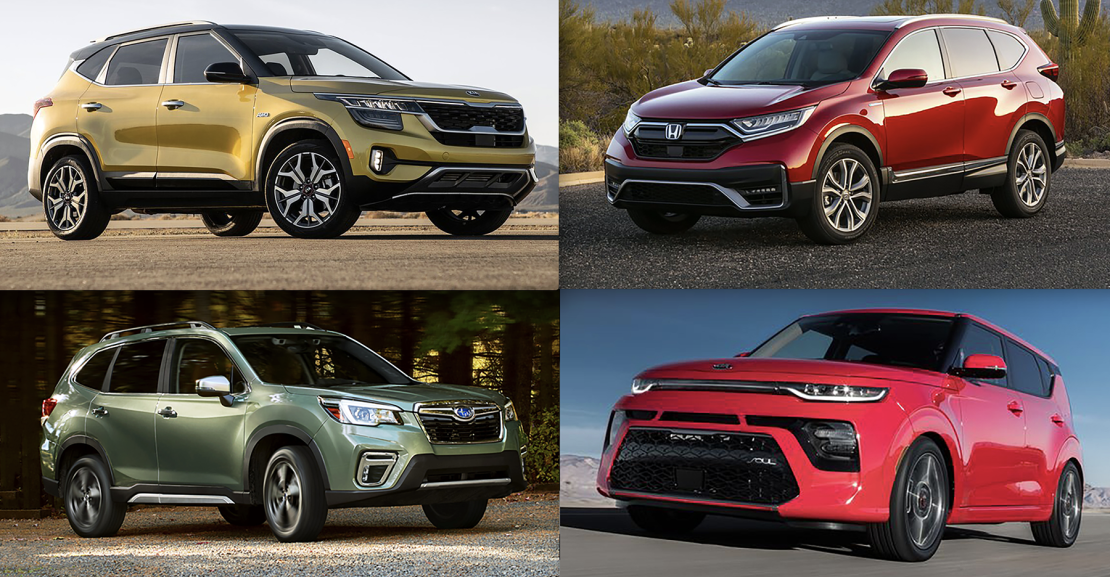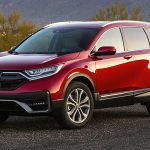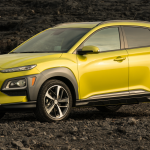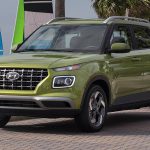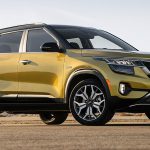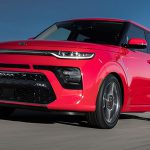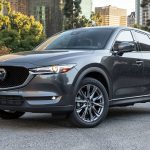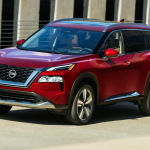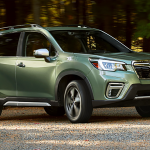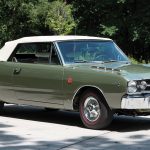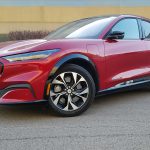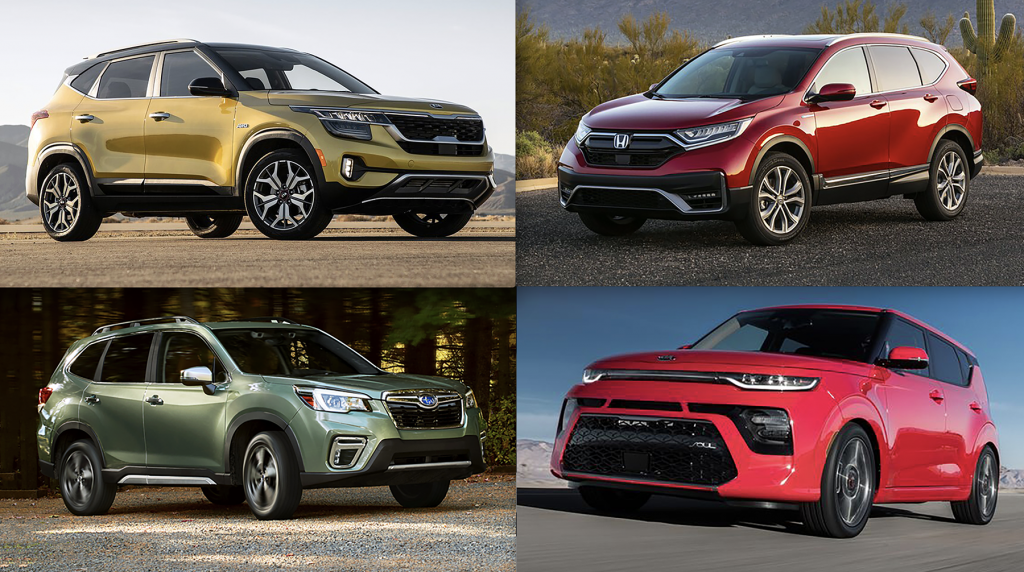
We don’t believe that the traditional passenger sedan is dead, but consumers have demonstrated an overwhelming preference for crossovers in recent years. Of the almost 15 million new vehicles sold in the U.S. last year, roughly half were crossovers or SUVs of some variety. Sedans–once the best-selling vehicles in the U.S. by far–accounted for around 2 million sales.
We understand this shift in consumer interest from cars to crossovers. While crossovers typically consume little or no additional garage space than similarly sized and priced sedans, they generally offer better passenger accommodations, more cargo space, a raised ride height for better visibility and easier entry/exit, and the promise of rugged go-anywhere versatility.
Here, we’re focusing on our favorite popularly priced, mainstream-brand subcompact and compact crossovers–all of the vehicles listed below were named 2021 Consumer Guide Best Buys. To check out our complete list of Best Buys, click here.
2021 Subcompact Crossover Highlights
 The subcompact SUV class gains two all-new contenders for 2021: the Chevrolet Trailblazer and Kia Seltos. The Trailblazer slots above the Trax in Chevy’s SUV lineup, and offers a choice of two turbocharged 3-cylinder engines: a 137-hp 1.2-liter or a 155-hp 1.3-liter. Front-wheel drive and a CVT transmission are standard; all-wheel drive paired with a 9-speed automatic transmission is available on most trim levels. The Seltos fits between the smaller Soul and larger Sportage in Kia’s SUV lineup. The standard engine is a 2.0-liter 4-cylinder with 146 horsepower and a 175-horsepower turbocharged 1.6-liter four is available. All-wheel drive is standard except for the S model, where it’s optional.
The subcompact SUV class gains two all-new contenders for 2021: the Chevrolet Trailblazer and Kia Seltos. The Trailblazer slots above the Trax in Chevy’s SUV lineup, and offers a choice of two turbocharged 3-cylinder engines: a 137-hp 1.2-liter or a 155-hp 1.3-liter. Front-wheel drive and a CVT transmission are standard; all-wheel drive paired with a 9-speed automatic transmission is available on most trim levels. The Seltos fits between the smaller Soul and larger Sportage in Kia’s SUV lineup. The standard engine is a 2.0-liter 4-cylinder with 146 horsepower and a 175-horsepower turbocharged 1.6-liter four is available. All-wheel drive is standard except for the S model, where it’s optional.
The Hyundai Venue loses its available 6-speed manual transmission, and the Mini Countryman gets minor styling updates and an available digital instrument panel. The Nissan Kicks gets an exterior styling refresh, and the Hyundai Kona, Jeep Renegade, and Toyota C-HR get new appearance packages. Looking further ahead, Volkswagen is preparing to introduce a new subcompact crossover called Taos as a 2022 model.
2021 Compact Crossover Highlights
The compact SUV class gains two hotly anticipated all-new entrants for 2021: the Ford Bronco and Ford Bronco Sport. The Bronco is engineered for rugged off-roading and has boxy styling inspired by the original 1966 Bronco. Two- and four-door versions are available, each with removable doors and a modular roof that can be removed in sections. The four-door-only Bronco Sport is essentially a “junior” Bronco in size, off-road capability, and price: it’s based on the basic platform of the Ford Escape and is about 17 inches shorter than the four-door Bronco.
The Nissan Rogue is completely redesigned, gaining a top-line Platinum trim level and a host of new technology and convenience features. The Jeep Wrangler lineup adds a ”4xe” plug-in-hybrid model with a 4-cylinder/electric powertrain that makes 375 hp and is capable of up to 21 miles of pure-electric operation. The Mazda CX-30 adds a 250-hp turbo 2.5-liter engine, the Subaru Crosstrek adds a 182-horsepower 2.5-liter four, and the Toyota RAV4 gets a 302-hp Prime plug-in-hybrid model. The Mitsubishi Eclipse Cross skips the 2021 model year, but a restyled version debuts as a 2022 model. Redesigned versions of the Hyundai Tucson and Mitsubishi Outlander also debut as 2022 models.
Meet the 2021 Consumer Guide Best Buys
Best Small Crossovers
Honda CR-V
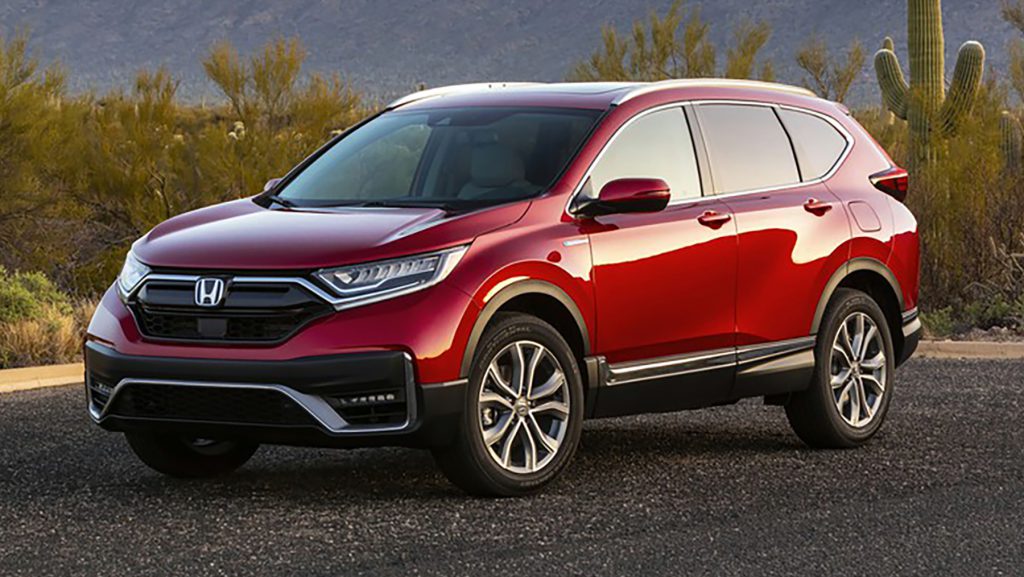
Class: Compact Crossover (see all the vehicles in this class)
Base price range: $25,350-$36,350
EPA fuel-economy range (mpg): 27-40
Max cargo space (cubic feet): 76
Pros: The CR-V offers excellent passenger and cargo versatility, polished driving manners, and an outstanding Hybrid model.
Cons: Acceleration with the regular gasoline engine is middling, and there are no traditional stand-alone options, so the CR-V isn’t as customizable as some rivals.
Note: CR-V Hybrids have about six cubic feet less cargo space than their non-hybrid siblings; the hybrid system’s battery is located underneath the rear cargo floor, which means it can’t be lowered for more volume.
Test Drive: 2020 Honda CR-V Touring
Test Drive: 2020 Honda CR-V Hybrid Touring
Hyundai Kona
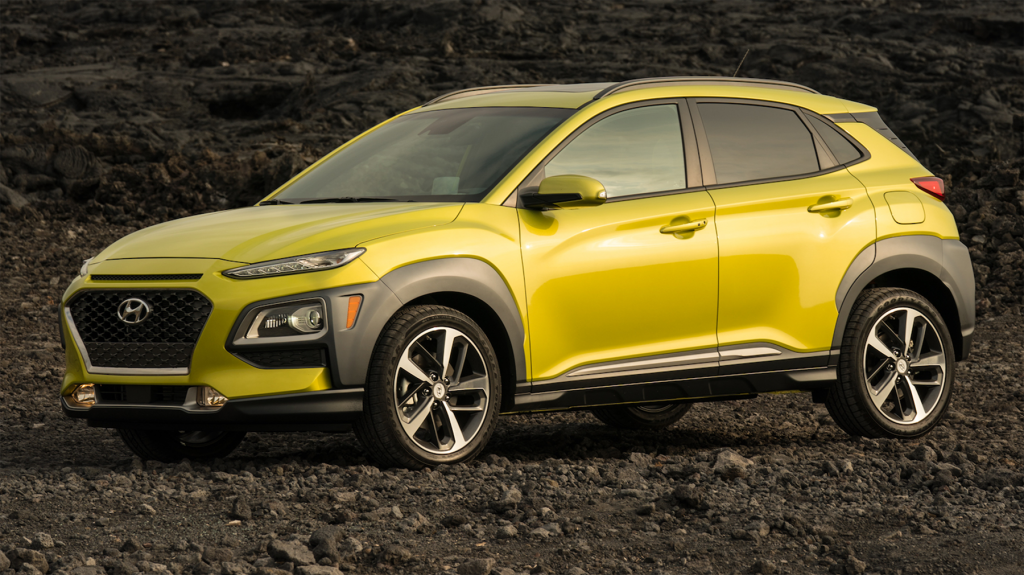
Class: Subcompact Crossover (See all the vehicles in this class)
Base price range: $20,400-$29,350
EPA fuel-economy range (mpg): 25-33
Max cargo space (cubic feet): 46
Pros: The Kona matches most of its competitors in terms of driving manners and all-around practicality, and bests most of them with its peppy available turbo engine and rare-for-the-class comfort and convenience features.
Cons: In lower trim levels, the interior materials aren’t as nice as some rivals’.
Note: A pure-electric variant named Kona Electric is available in select states; it has a 201-hp electric motor and an estimated driving range of 258 miles.
Test Drive: 2020 Hyundai Kona Ultimate
Hyundai Venue
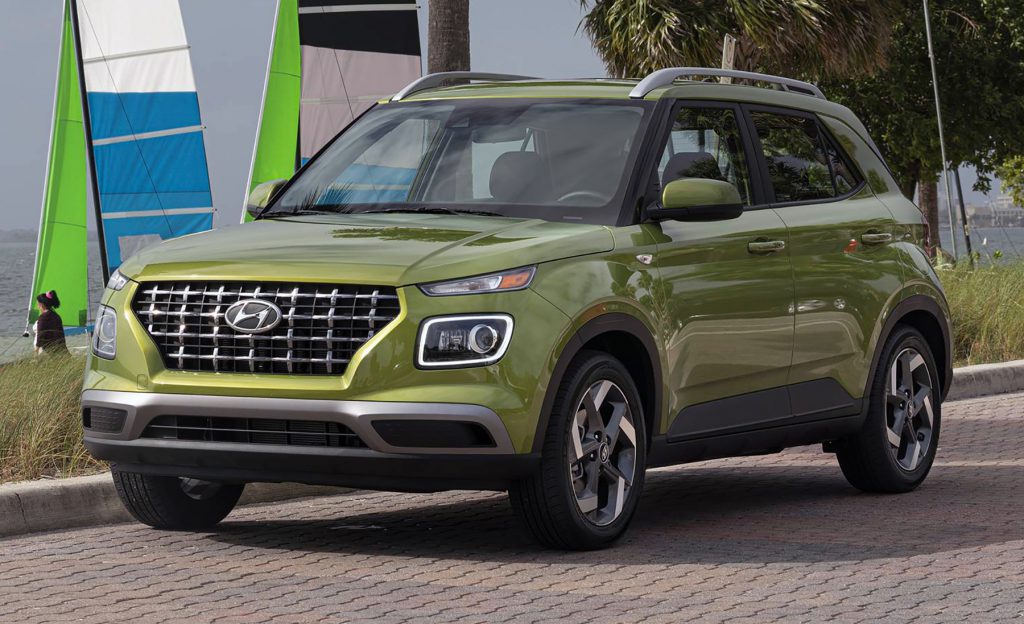
Class: Subcompact Crossover (See all the vehicles in this class)
Base price range: $18,750-$22,050
EPA fuel-economy range (mpg): 26-33
Max cargo space (cubic feet): 32
Pros: The Venue is one of the smallest, most affordable vehicles in the subcompact SUV class, yet it offers more passenger and cargo room than you might expect, along with an impressive list of standard and available comfort/convenience and safety features.
Cons: All-wheel drive isn’t available, the ride quality is a bit clunky, and the engine can grow noisy when accelerating.
Note: The top-line Denim model gets a number of unique trim features, including an exclusive (and mandatory) Denim interior-upholstery color and two-tone Denim/white body paint.
Test Drive: 2020 Hyundai Venue Denim
6 Cool Things about the Hyundai Venue
Kia Seltos
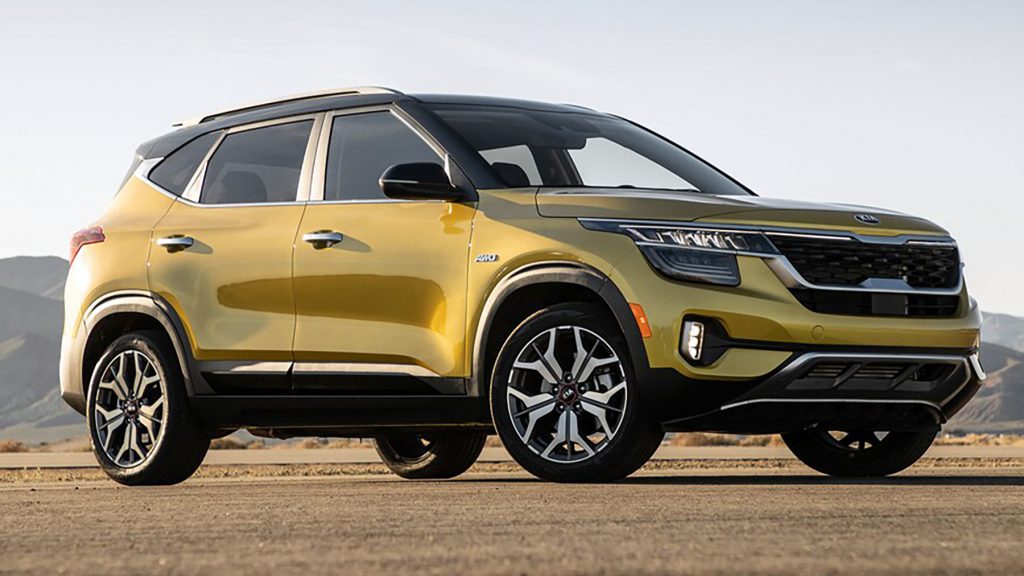
Class: Subcompact Crossover (See all the vehicles in this class)
Base price range: $21,990-$27,890
EPA fuel-economy range (mpg): 25-34
Max cargo space (cubic feet): 63
Pros: The Seltos provides excellent passenger and cargo room within its tidy exterior dimensions, along with striking styling inside and out and a generous list of available features.
Cons: Some of the interior materials are just so-so, and the turbo engine’s dual-clutch transmission’s shifts are sometimes balky.
Note: The Seltos is available in eye-catching hues such as Starbright Yellow and Mars Orange, and also offers a contrasting paint color on the roof as an extra-cost option.
Test Drive: 2021 Kia Seltos SX Turbo
Kia Soul
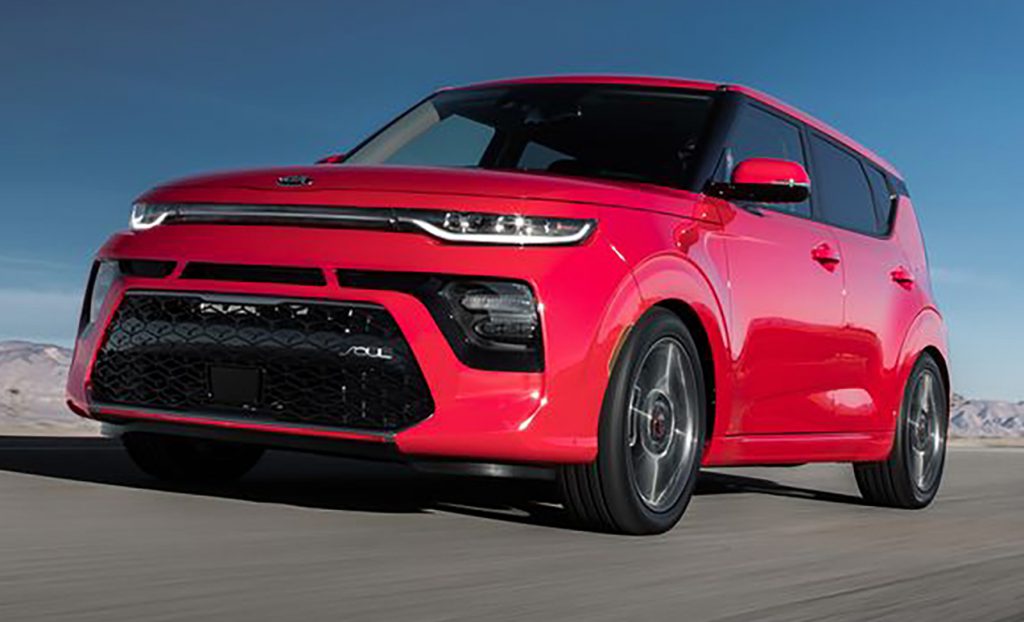
Class: Subcompact Crossover (See all the vehicles in this class)
Base price range: $17,490-$27,550
EPA fuel-economy range (mpg): 25-35
Max cargo space (cubic feet): 62
Pros: Soul delivers impressive passenger room, flexible cargo space, and lots of upscale available features in a tidy, pleasant-to-drive package.
Cons: All-wheel drive isn’t available, some desirable tech and safety features are restricted to the pricier top-line models, and the turbo-engine transmission’s shifts can feel clunky.
Note: Kia is planning to offer an all-electric Soul EV version, like it did with the previous-generation Soul, in California and other select U.S. states.
Test Drive: 2020 Kia Soul X-Line
Test Drive: 2020 Kia Soul GT-Line Turbo
Mazda CX-5
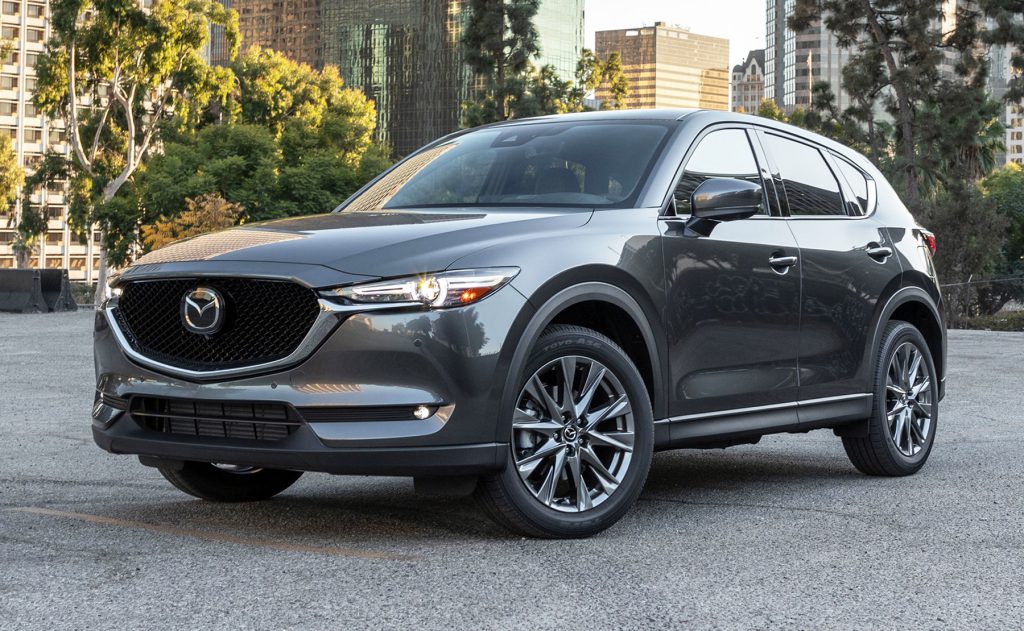
Class: Compact Crossover (see all the vehicles on this class)
Base price range: $25,270-$37,405
EPA fuel-economy range (mpg): 22-31
Max cargo space (cubic feet): 60
Pros: The CX-5 boasts nimble handling, excellent steering feel, a classy interior, and a fine selection of available features in a cohesive, well-put-together package.
Cons: Cargo space doesn’t rank with the best in the class, and some testers dislike the console-mounted infotainment-system controls.
Note: The CX-5 utilizes Mazda’s G-Vectoring Control Plus system, which varies engine torque in response to steering inputs for better cornering performance and ride stability.
Quick Spin: 2020 Mazda CX-5 Signature
Nissan Rogue

Class: Compact Crossover (see all the vehicles on this class)
Base price range: $25,650-$36,830
EPA fuel-economy range (mpg): 25-35
Max cargo space (cubic feet): 73
Pros: The Rogue offers pleasant driving dynamics, a broad range of comfort and technology features, and passenger/cargo versatility that few compact SUVs can match.
Cons: Only one powertrain is available, and its passing power is only so-so.
Note: The Rogue offers the latest version of Nissan’s ProPILOT Assist feature, a driver-assist system that pairs adaptive-cruise-control functionality with automatic lane-centering steering assist (the driver’s hands must remain on the steering wheel).
Real-World Walk-around: 2021 Nissan Rogue
Subaru Forester
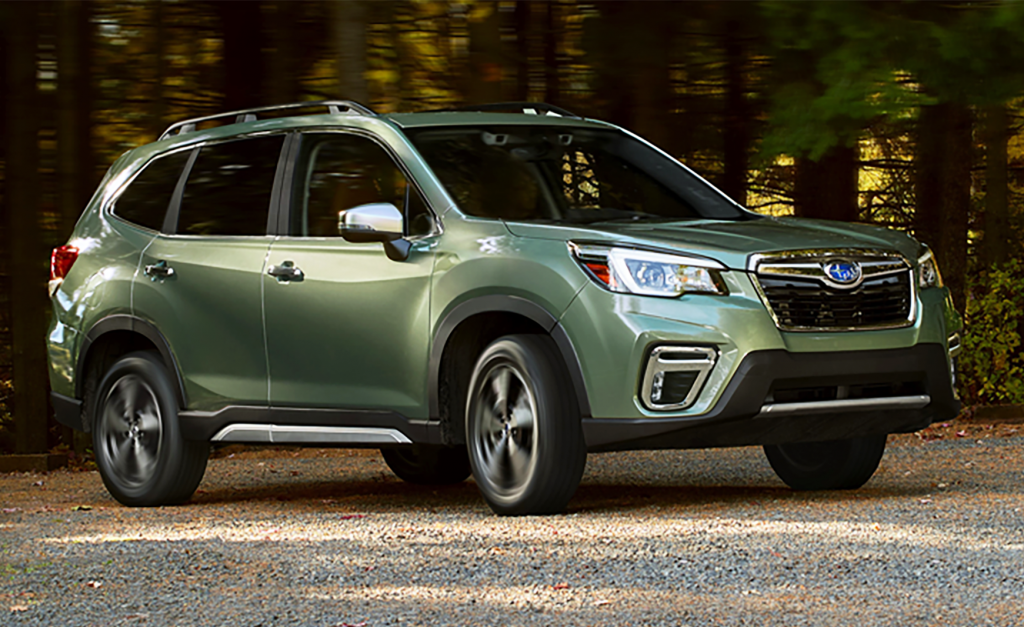
Class: Compact Crossover (see all the vehicles on this class)
Base price range: $24,795-$34,895
EPA fuel-economy range (mpg): 26-33
Max cargo space (cubic feet): 73
Pros: The Forester stands out as one of the most practical, spacious, versatile, off-road-capable, and easy-to-see-out-of vehicles in its class.
Cons: Acceleration is mediocre, and the engine’s fuel-saving auto stop/start system (which can be switched off) is a bit clunky and slow to engage.
Note: The specially trimmed Sport model gets sporty touches such as orange accent trim inside and out, black-finished 18-inch wheels, and steering-wheel paddle shifters.
Test Drive: Subaru Forester Touring
Check out the Consumer Guide Car Stuff Podcast
Best Small Crossovers Gallery
(Click below for enlarged images)
Best Small Crossovers of 2021
Consumer Guide Car Stuff Podcast, Episode 57; 2021 Consumer Guide Best Buys
Best Small Crossovers of 2021

